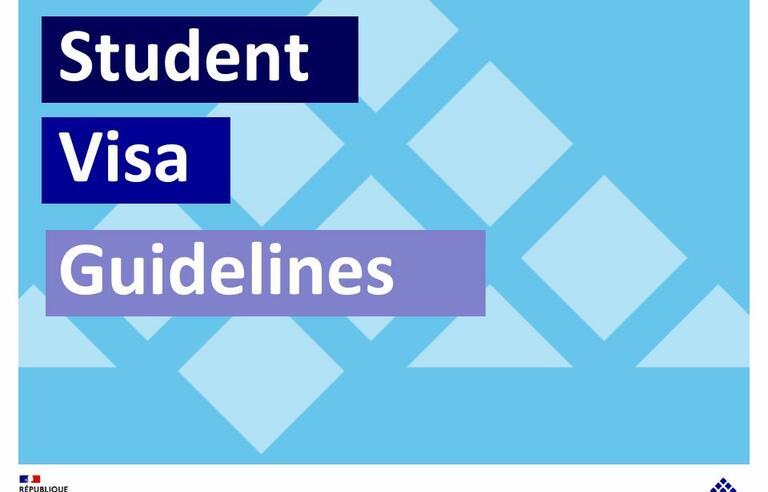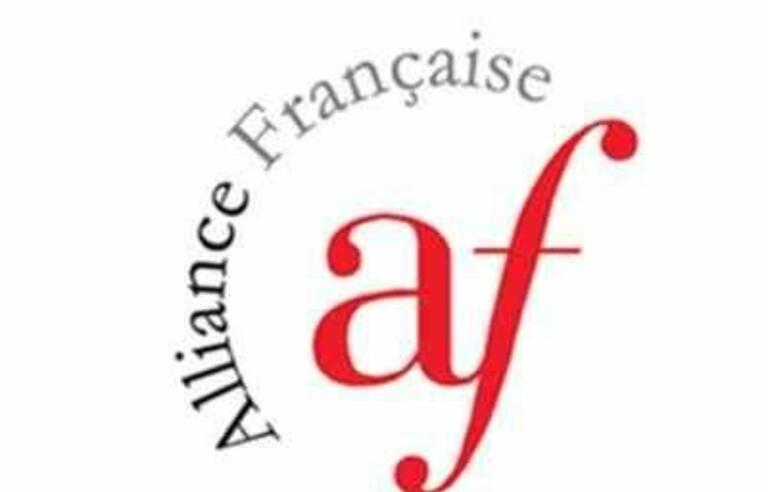Life After Studying in France

What's next after you have studied abroad in France, or earned a degree in France?

Life After Study Abroad
You have studied abroad in France, and now are looking for ways to stay connected to your experience and leverage what you have learned into your next professional and academic steps.
Here are several suggestions:
- Join the FranceAlumni USA network.
- Update your resume to include your study abroad experience in a meaningful way - Here are some tips from IES Abroad, tips from CEA Abroad, and tips from Indeed.
- Consider pursuing a Masters degree in France.
- Follow Campus France USA on Facebook and Instagram.
- Follow the Cultural Services of the French Embassy on Facebook and Instagram.
- Bookmark frenchculture.org - Stay up-to-date with the literary, film, tech, food, and musical culture of France.
- Visit the Albertine Bookshop in person in NYC, or online.
- Connect with your local French Consulate - Reach out to the Educational of Cultural Attaché about events, internships, and other opportunities.
- Connect with your local Alliance française - You can continue taking French language classes, take a French proficiency exam, or follow the cultural events of the Alliances.
- Connect with your local French-American Chamber of Commerce to learn how to strengthen business relationships between France and the US.
- Consider working or interning in France through the French-American Chamber of Commerce's Outbound Program.
- Consider returning to France with the Fulbright program - Various programs for students, professionals, and researchers, facilitated by the Franco-American Fulbright Commission.
- Consider teaching English in the French public school system with TAPIF - 1,500 Americans are hired every year by the French Ministry of Education to teach English in French public elementary and secondary schools.
- Consider becoming a lecteur/lectrice in a French university - This is a teaching assistant position at the University level. Contact universities or institutions of higher education in France to inquire about these positions.
- If you have learned French, leverage your language skills in your professional field.
- Considering pursuing research in France as a doctoral student.
- Apply for scientific research funding through the Thomas Jefferson Fund.
- Apply for full research funding (STEM and Humanities/Social Sciences) through the Chateaubriand Fellowship Program - Every year, between 55 and 70 US doctoral students are offered full funding packages to support a semester or a year of reserach in a French institution.
- Consider teaching French as a foreign language in the US.
- Teach French in an immersion program in the US - The Cultural Services of the French Embassy and the FACE Foundation offer scholarships of up to $10,000/year to support future French immersion teachers.

PROFESSIONAL & ACADEMIC RECOGNITION IN EUROPE
Your French diploma will open many doors. Below are several resources that may help you transition in your next steps if you plan to stay in Europe.
Professional recognition inside the European union
There is no automatic recognition of diplomas and degrees, therefore “compensatory measures” might apply if the difference between the studies received and those required in the host countries are substantial. Some professions have specific requirements and are regulated by law. All information on these professions and on access procedures can be obtained from the ENIC-NARIC network.
Another useful website on professional orientation and mobility in Europe: Euroguidance
Academic recognition inside the European union
Continuing your studies in another member state of the European Union within the framework of individual mobility or organized mobility (ERASMUS or LEONARDO, Community programs, 'bilateral exchanges, etc.) is possible. In the case of organized mobility, the recognition of diplomas is generally provided for in exchange agreements, or by the application of the European system of units (ECTS)* that can be accumulated. Member states of the European Union have multilateral agreements regarding academic qualifications in higher education.
*ECTS is the Système européen de transfert et d’accumulation de crédits. "European credit transfer system". These credits validate coursework (tests, internships, dissertations, etc.). Once obtained, they are transferable among European institutions of higher education. ECTS credits have a numerical value (value between 1 and 60) assigned to each course unit, the volume of work that the student is supposed to provide (classwork, TD, TP, personal work) for each of them. Under the European credit system, 60 credits represent the volume of one year of study.
To obtain various degrees within the higher education system, a student must complete the following ECTS credits:
- Licence: 180 credits in six semesters
- Master: 120 credits in four semesters, after having completed the Licence
- Doctoral degree: Obtaining admission and beginning a PhD program is only possible after validation of 300 credits (180 during the Licence + 120 during a Master program).
In France, it is not possible to enter a Doctoral program directly after completing a License or other undergraduate degree, as is sometimes the case in certain fields of study in US universities.
STAYING IN FRANCE TO WORK
For Non-European Students
To stay in France after graduating, non-European students must have secured employment that will pay at least one and a half times the minimum wage. (The minimum wage or SMIC is of 1521,22 euros gross per month in 2019 ; or 10,15 euros per hour).
Without the promise of employment, a foreign, non-European graduate may request an Autorisation Provisoire de Séjour (APS - temporary resident permit) valid for twelve months and non-renewable, while they seek employment in France. To do this, they must have a professional Bachelor's or a Master's-level degree or be in the process of starting a company.
Advice for Job Searching in France
Before starting to look for a job, identify the type of position you are looking for. Then prepare your CV and cover letter according to the employer's instructions.
-
Keep an eye on sites with job opportunities and create email alerts by saving your search criteria. Pôle Emploi (Employment Centre) lists job ads from all of the sites. The APEC (the Association Pour l'Emploi des Cadres - the Management Employment Association) site also has some, so make sure you check them regularly. Cadre emploi : vacancies for executive posts and jobs with responsibility in French.
-
EURES – European Job Mobility Portal – includes job vacancies, living and working conditions and labour markets in France, as well as a CV-posting service for jobseekers.
-
Take the time to update your CV and adapt it to each job offer you pursue.
-
Don't hesitate to send your CV to companies you are interested in, you can also reach out to request informational interviews to understand companies and organizations that interest you.
-
Be careful with your e-reputation and the information about you that everyone can access. Recruiters frequently use social networks to get a sense of applicants.
-
Go to job fairs to meet recruiters. CV and cover letter in hand, you could have several interviews in one day. Make sure you are well prepared, and ask informed questions.
-
Contact Alumni Associations, Bureau d’Aide à l’Insertion Professionnelle (BAIP - Professional Insertion Assistance Offices), company relations services, recruitment forums, etc. Many institutions and universities also offer graduates help finding work.
-
Join professional social networks, such as LinkedIn.
-
Join the FranceAlumni USA network
-
Use your internship network. Many programs have a mandatory end-of-studies internship, which can be great way for students to learn how their course of study applies to the real world and build a valuable experience that makes them stronger candidates for jobs after graduation. Positioning yourself as a hardworking, reliable worker puts you in good standing for consideration. If the company is not hiring at the time your internship ends, do not be disappointed. You can still ask the company for a reference, which you can leverage when applying for jobs later. And equally important, you've met the first people in your professional network. Keep in touch with them.
-
Contact companies and organizations that interest you. You can use Pages Jaunes to look for companies in your sector, or use industry directories such as Kompass or the Chamber of Commerce Directory.
STAYING IN FRANCE TO START A BUSINESS
France has a thriving business and start-up ecosystem, and many international students stay in France to start their own companies.
Starting a business in France
Watch the 10 steps that the Agence France entrepreneur recommends you follow when starting a company in France.
Who can start a company in France?
Nationals from the European Union, the European Economic Area and Switzerland, and graduates of the French higher education system, can freely start a company in France.
Nationals of other countries must have an Autorisation Provisoire de Séjour (APS - temporary residency permit), to be able to create a company in France. It allows them to stay in France for one year after graduation while they develop their project.
When the APS expires, if the company is economically viable, they must apply for a carte de séjour temporaire mention entrepreneur-profession libérale (temporary freelance-entrepreneur residency permit) which will authorize them to work in a self-employed professional activity.
Read the full article from Campus France on how to start and build a company in France.
Recognition of your degree in the United States
One of the first questions students ask about pursing an undergraduate or graduate degree abroad is how it will be recognized in the US, either on the job market or by academic institutions.
In the US, there is no single authority that provides recognition of foreign degrees or international qualifications. Employers and academic institutions are independent in the way they evaluate and recognize degrees earned abroad.
Read more about Foreign Degree Recognition on the US Department of Education website.
Recognition by US Employers
Many employers will perceive your international degree, and international experience, as an asset, and it may allow you to stand out in a positive way among your peers.
You still need to do your research. Consider the employers or employment sectors that interest you, contact hiring managers for these organizations and companies and ask them specifically how they would perceive your French degree and what, if any, information you would need to provide in the hiring process in order for them to formally recognize your degree or qualifications.
We also recommend connecting with current staff of the employers you are considering on LinkedIn, connect with Alumni of your French institution on LinkedIn or on FranceAlumni USA. Ask them about their perceptions of your French degree (or future French degree), ask Alumni of your French institution about their experiences job seeking.
Recognition by US Higher Education Institutions
If you earned a degree in France, but would like to continue graduate school in the US, you should reach out to US programs that you are interested in to speak with them about how they will recognize your French degree. Each institution is independent in their assessment of international degrees, and so it is important that you contact directly your US institutions admissions office to understand how they will recognize your degree abroad.
ACCRAO Edge - Database and resource to help employers and institutions of higher education evaluation degrees earned abroad.
On the same topic
- Starting a Company in Francehttps://www.campusfrance.org/en/how-to-start-company-France
- Cultural Services of the French Embassy in the United Stateshttps://frenchculture.org/
- Teaching Assistant Program in France (TAPIF)https://frenchhighereducation.org/teaching-assistant-program
- How to Find Work in Francehttps://www.campusfrance.org/en/how-to-find-work-France
- FranceAlumni USAhttps://www.francealumni.fr/en/position/usa/























